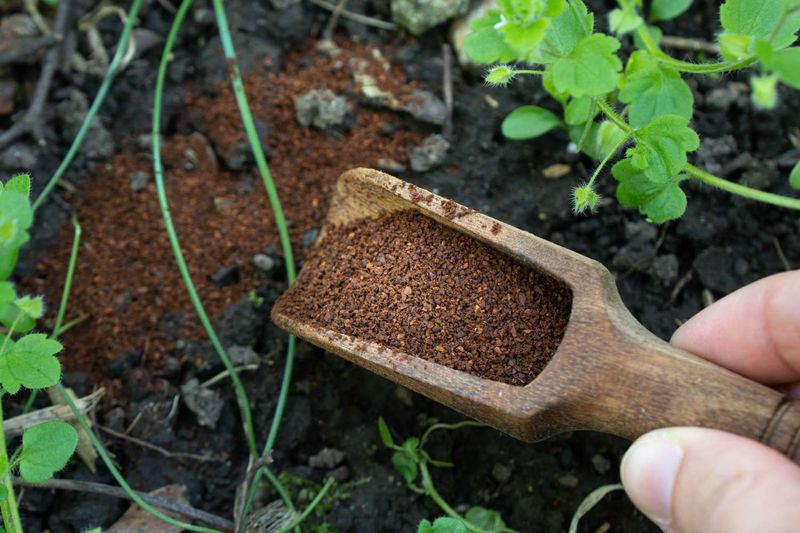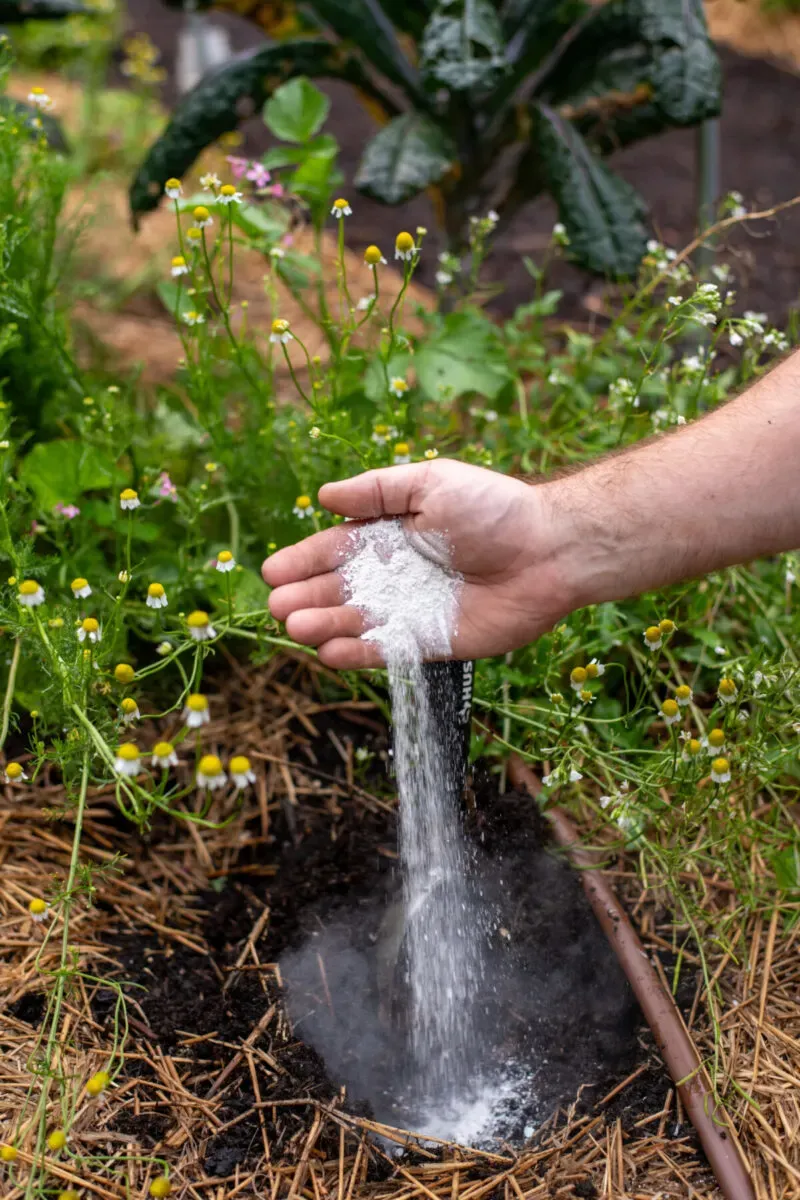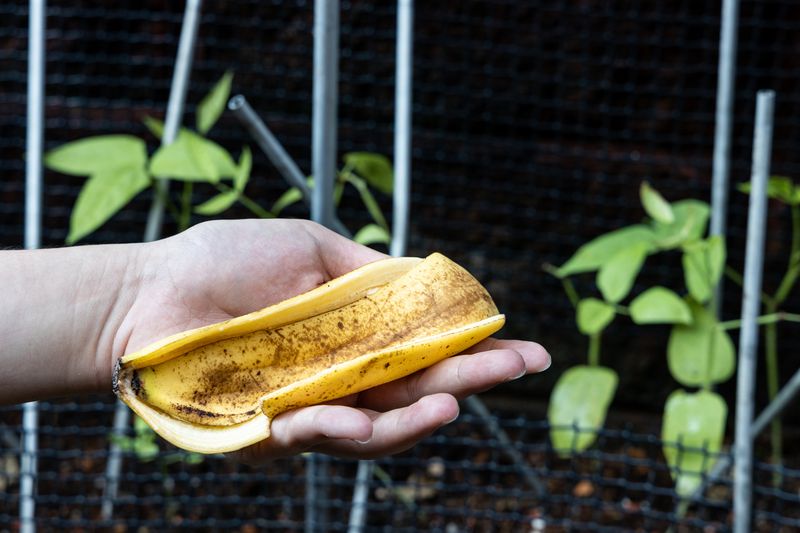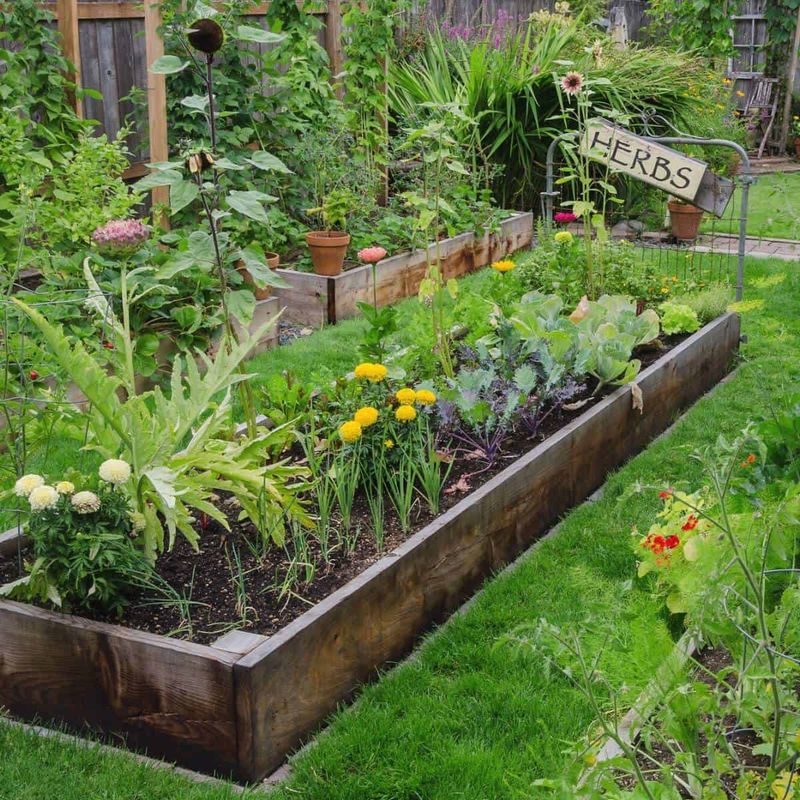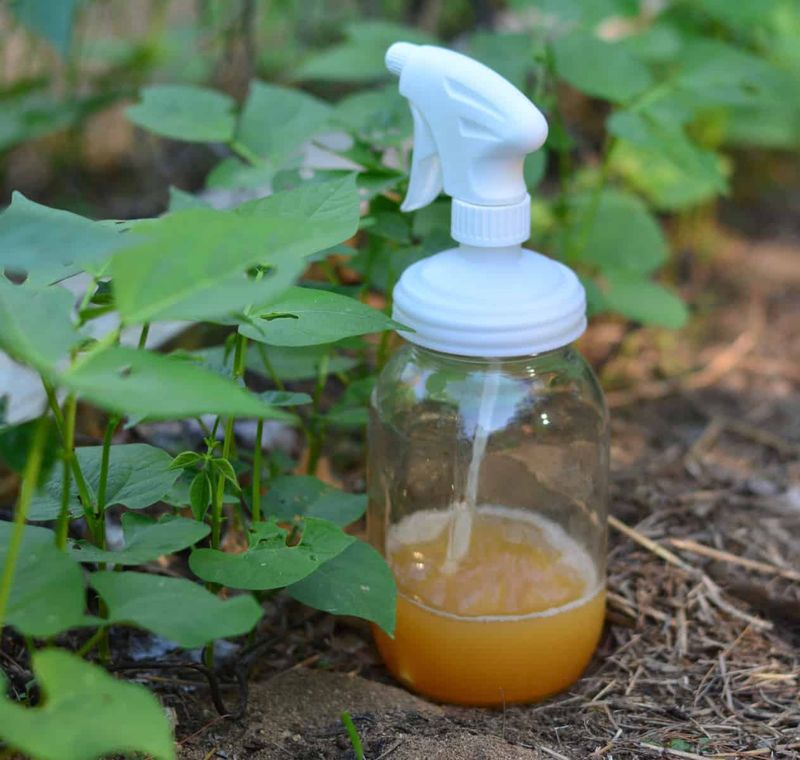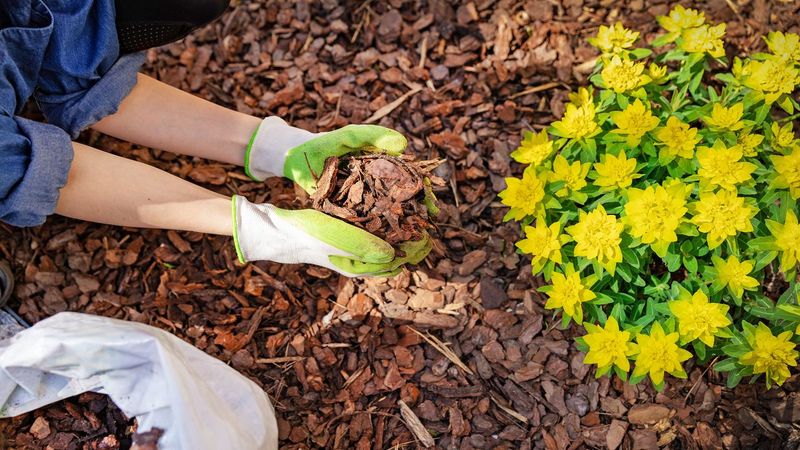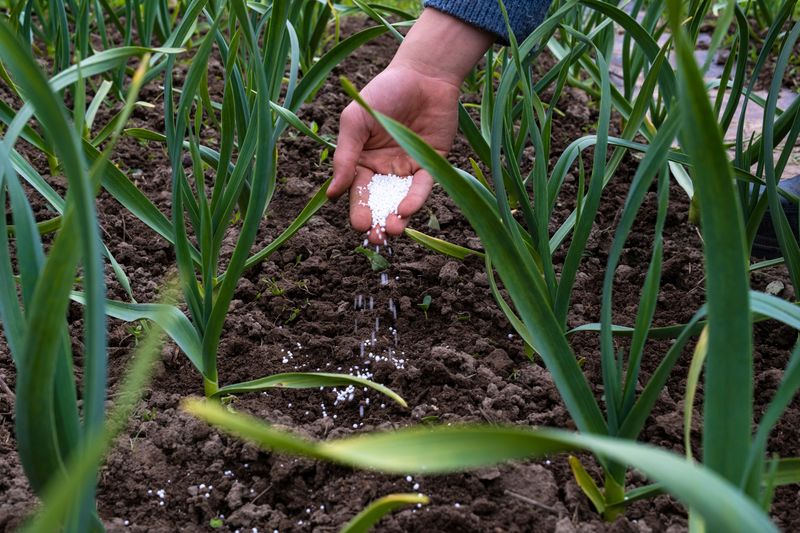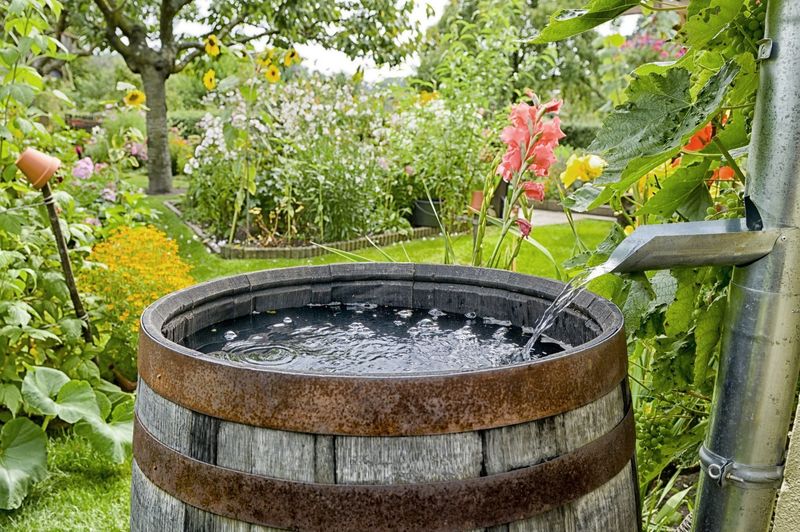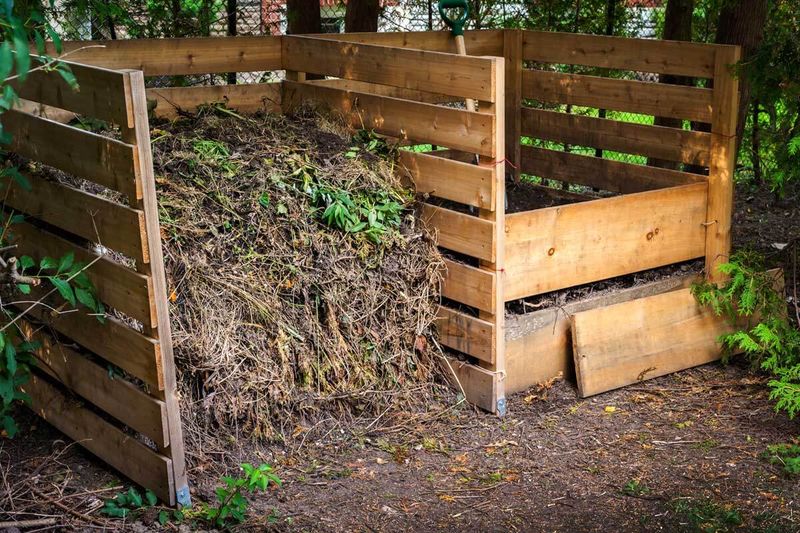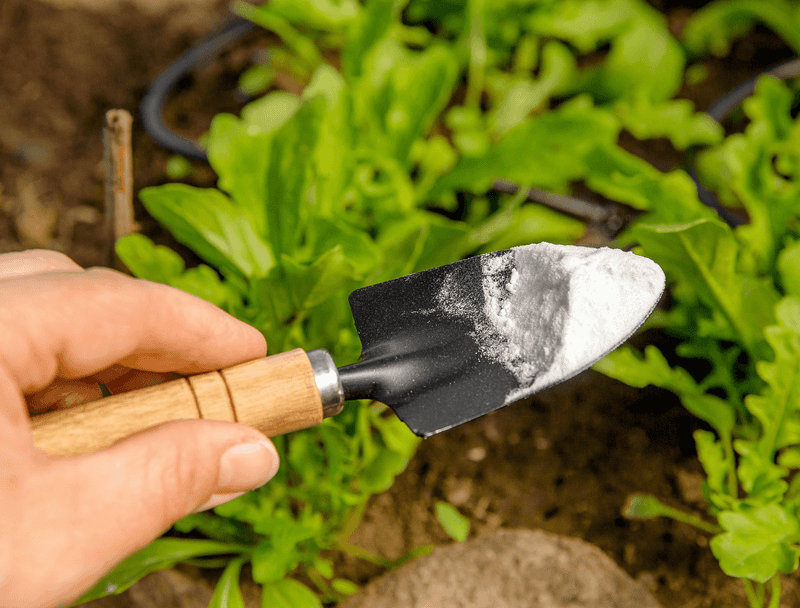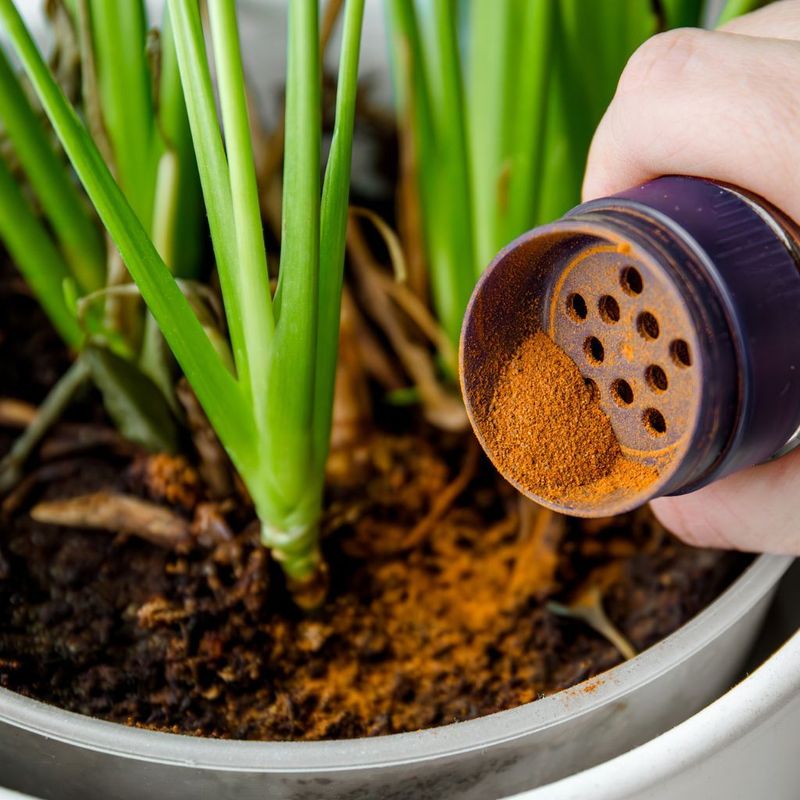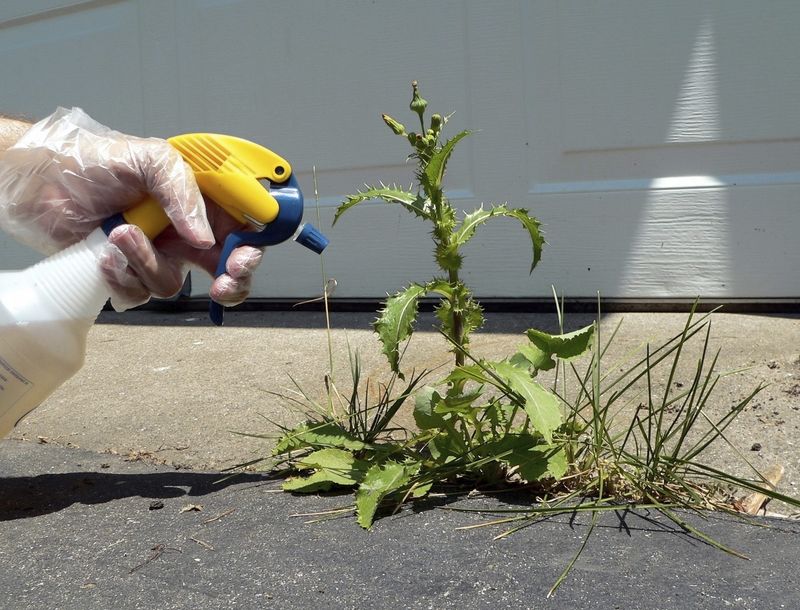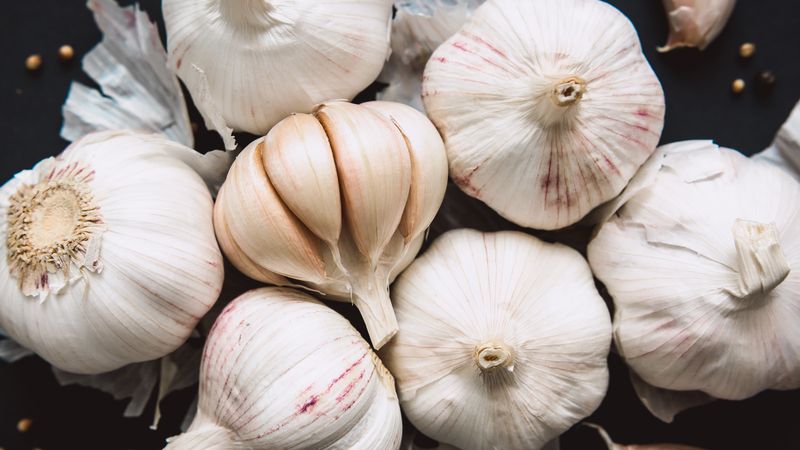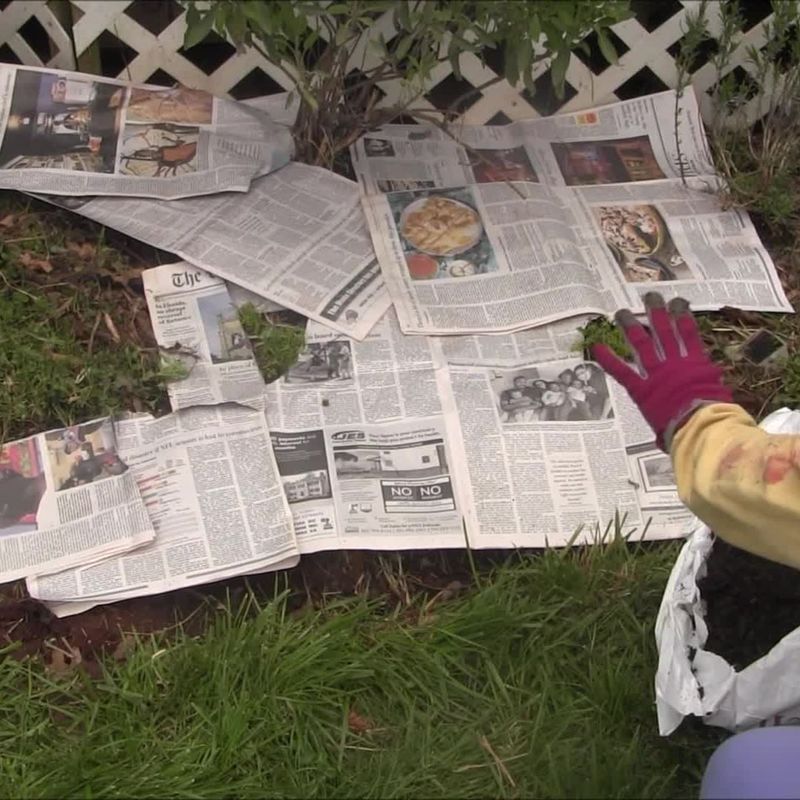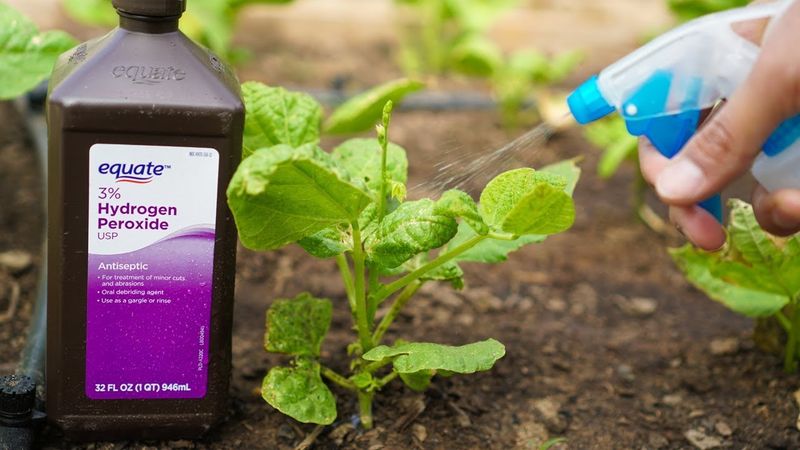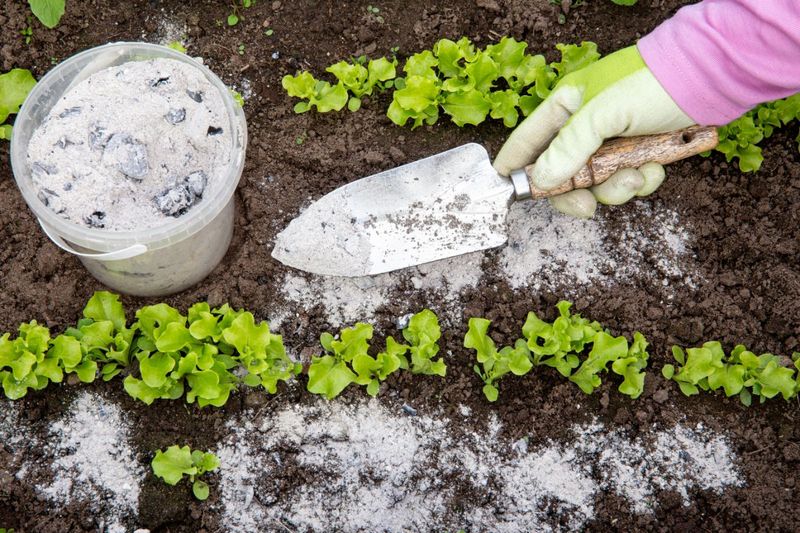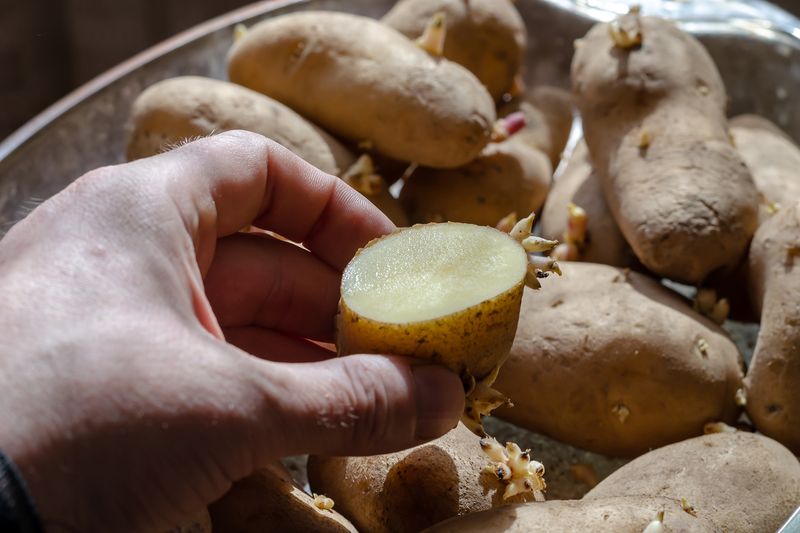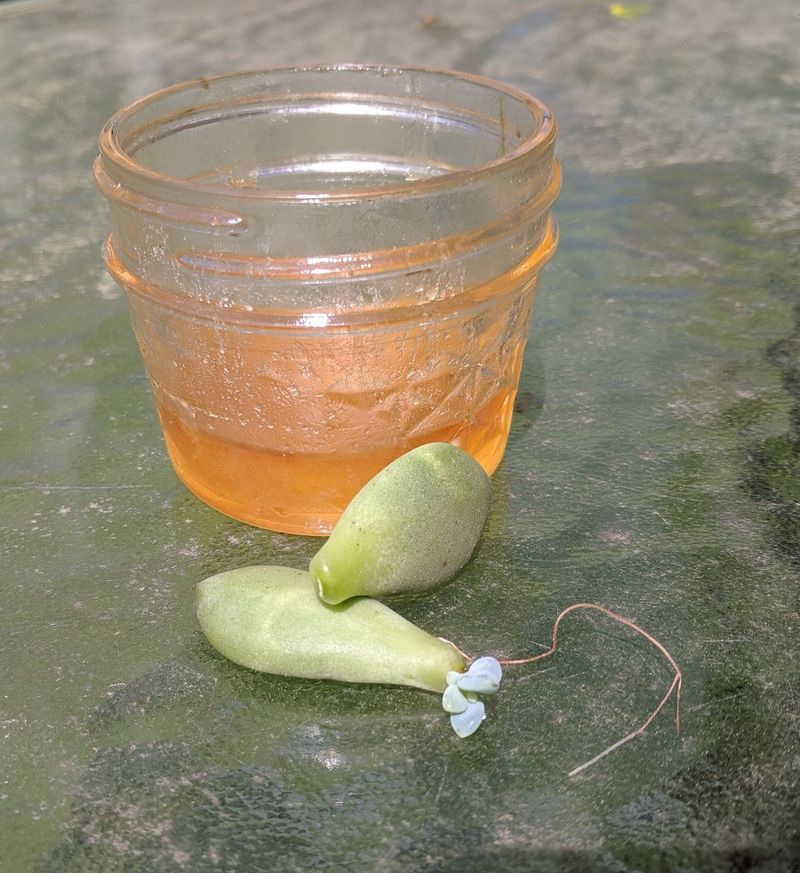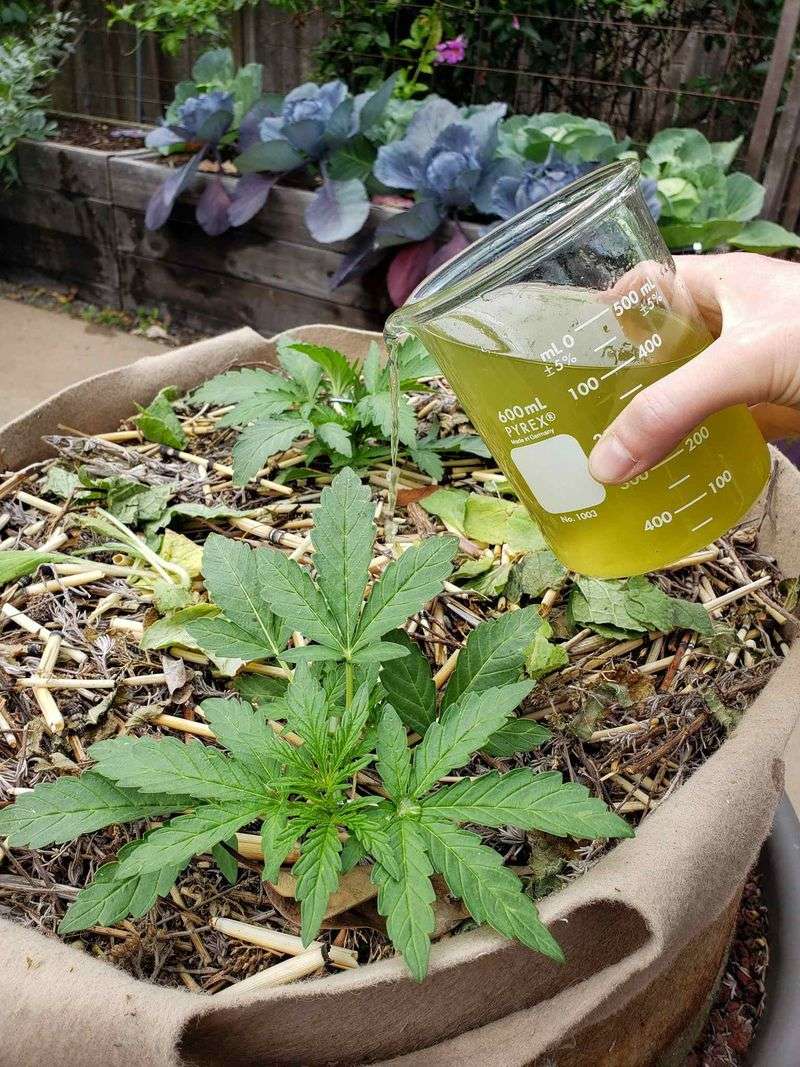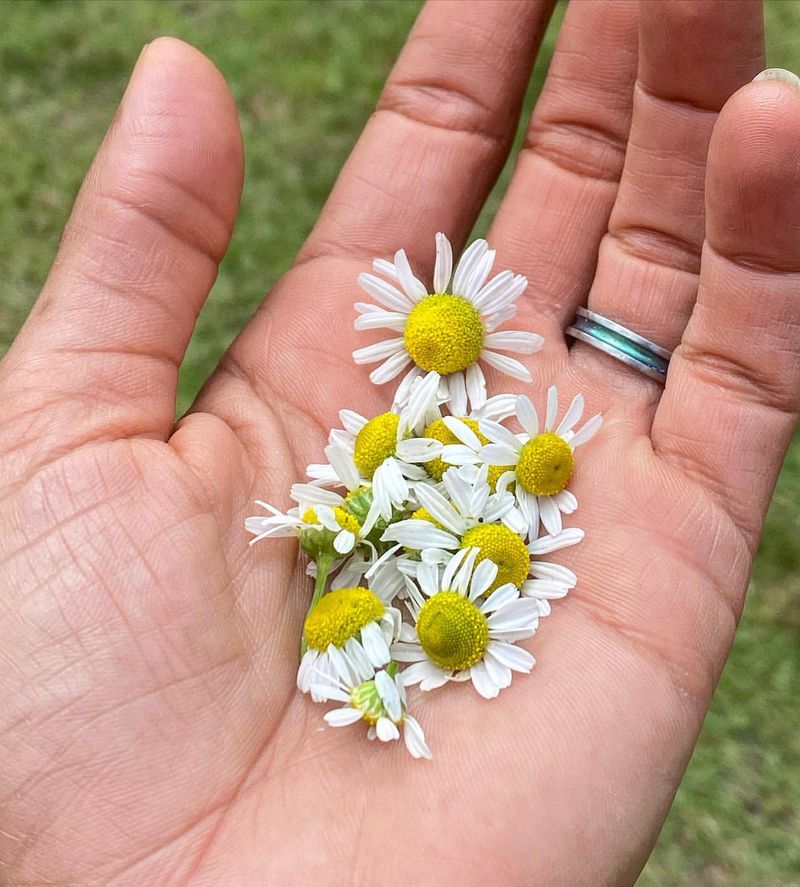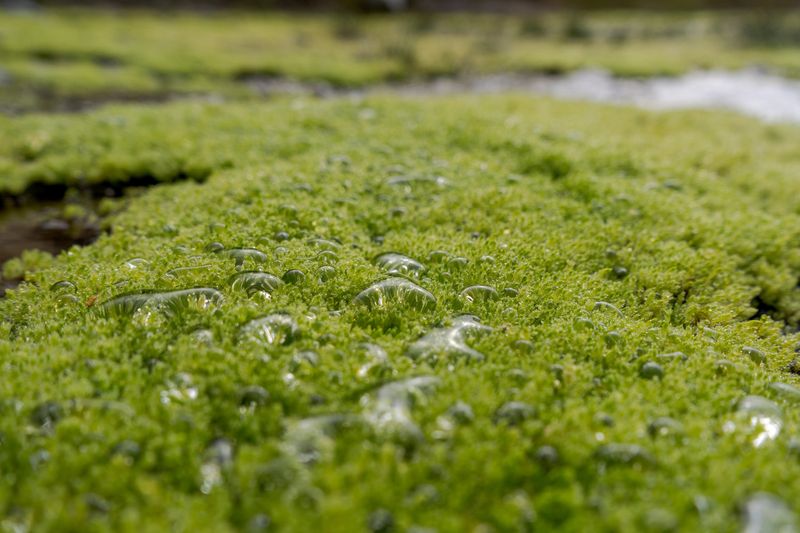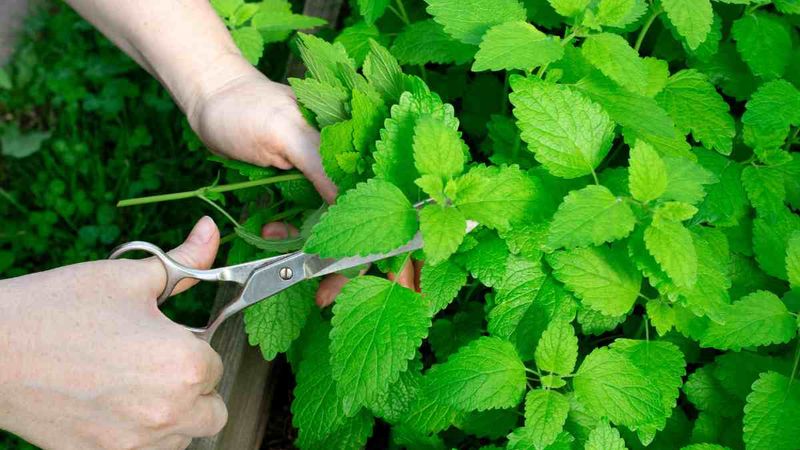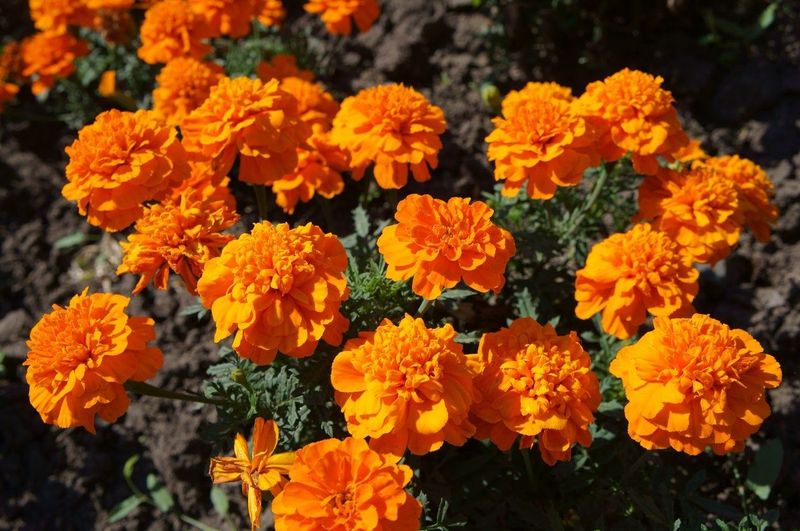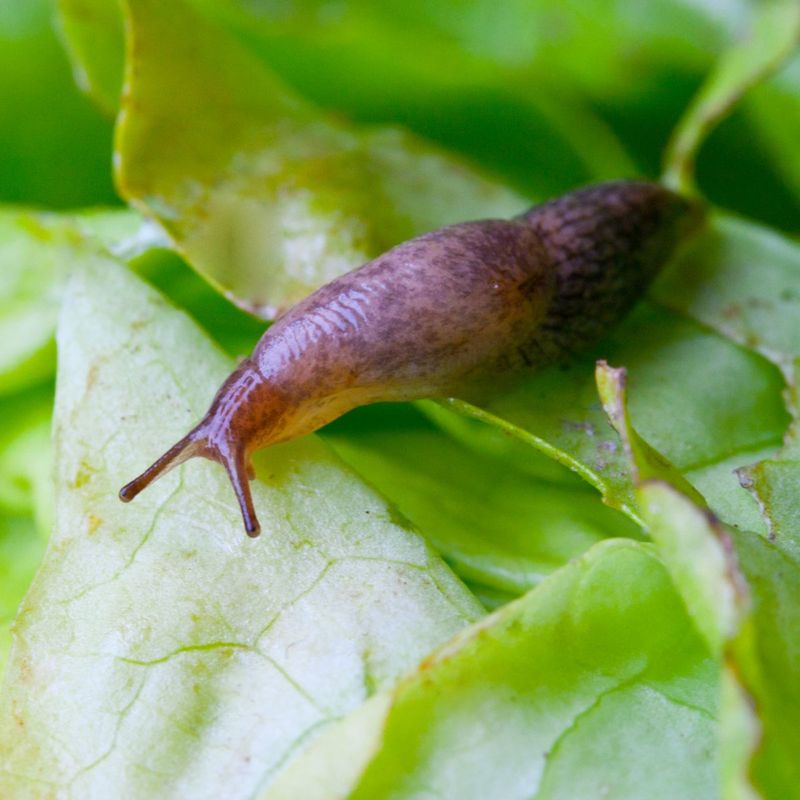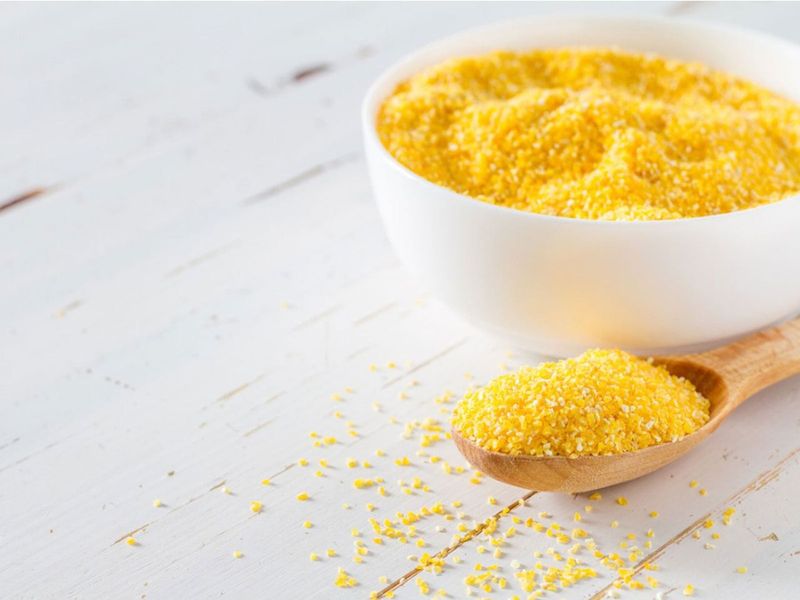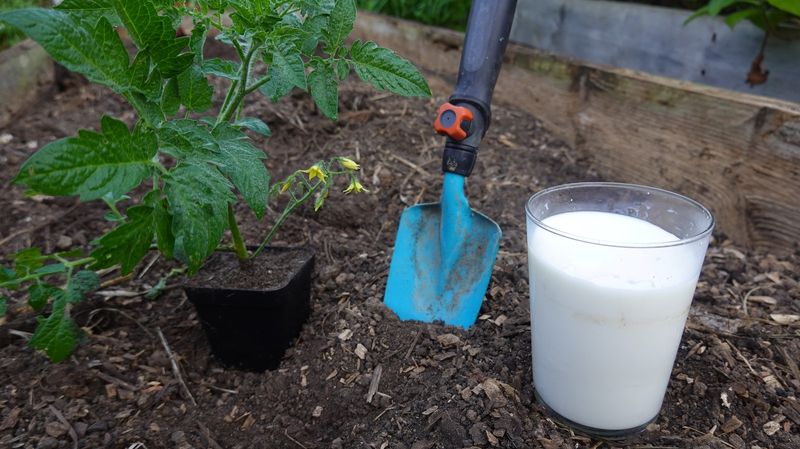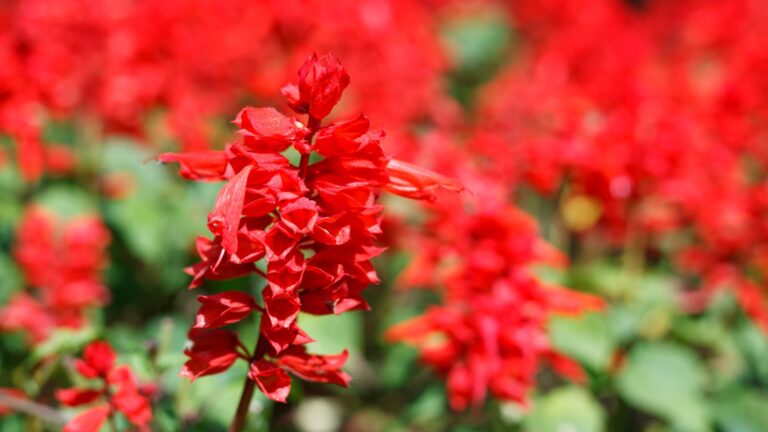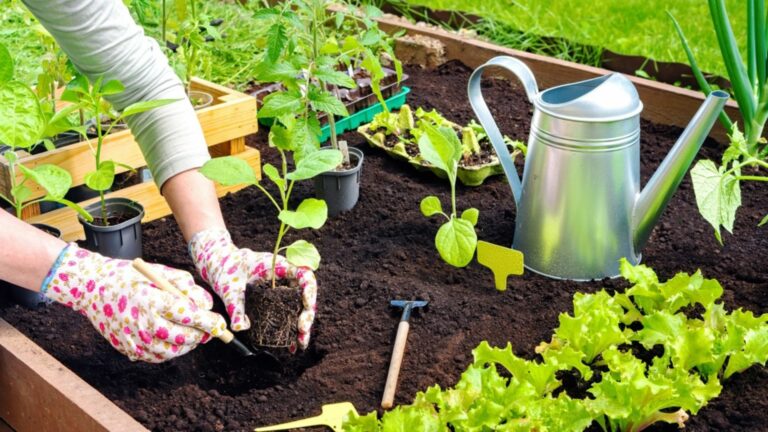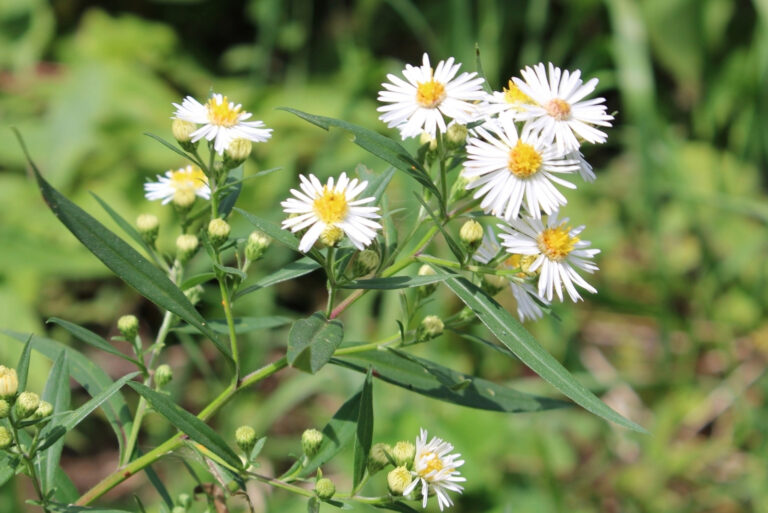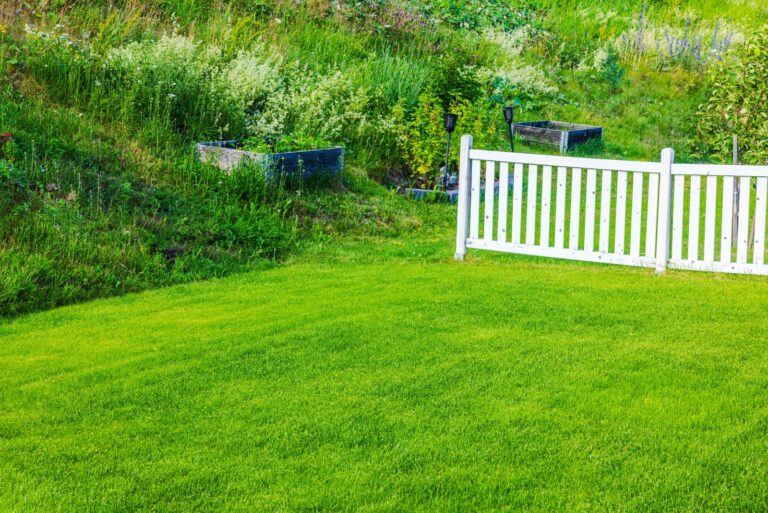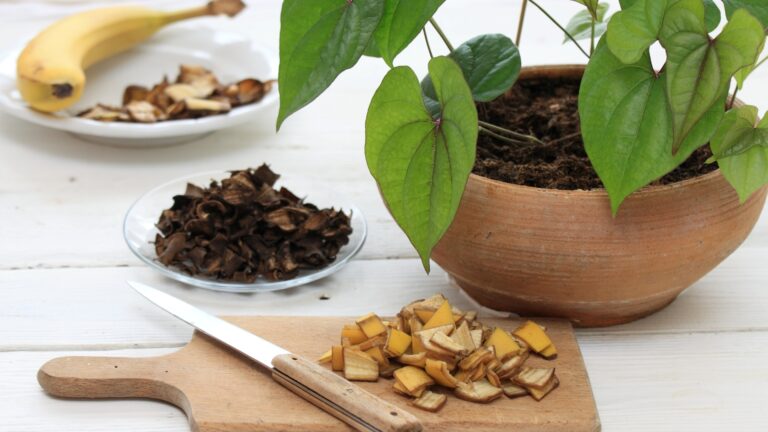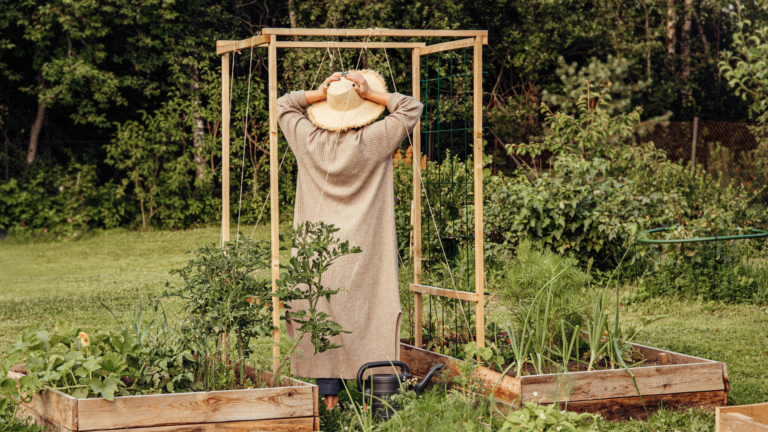31 Gardening Tips From Grandma That Still Work Wonders Today
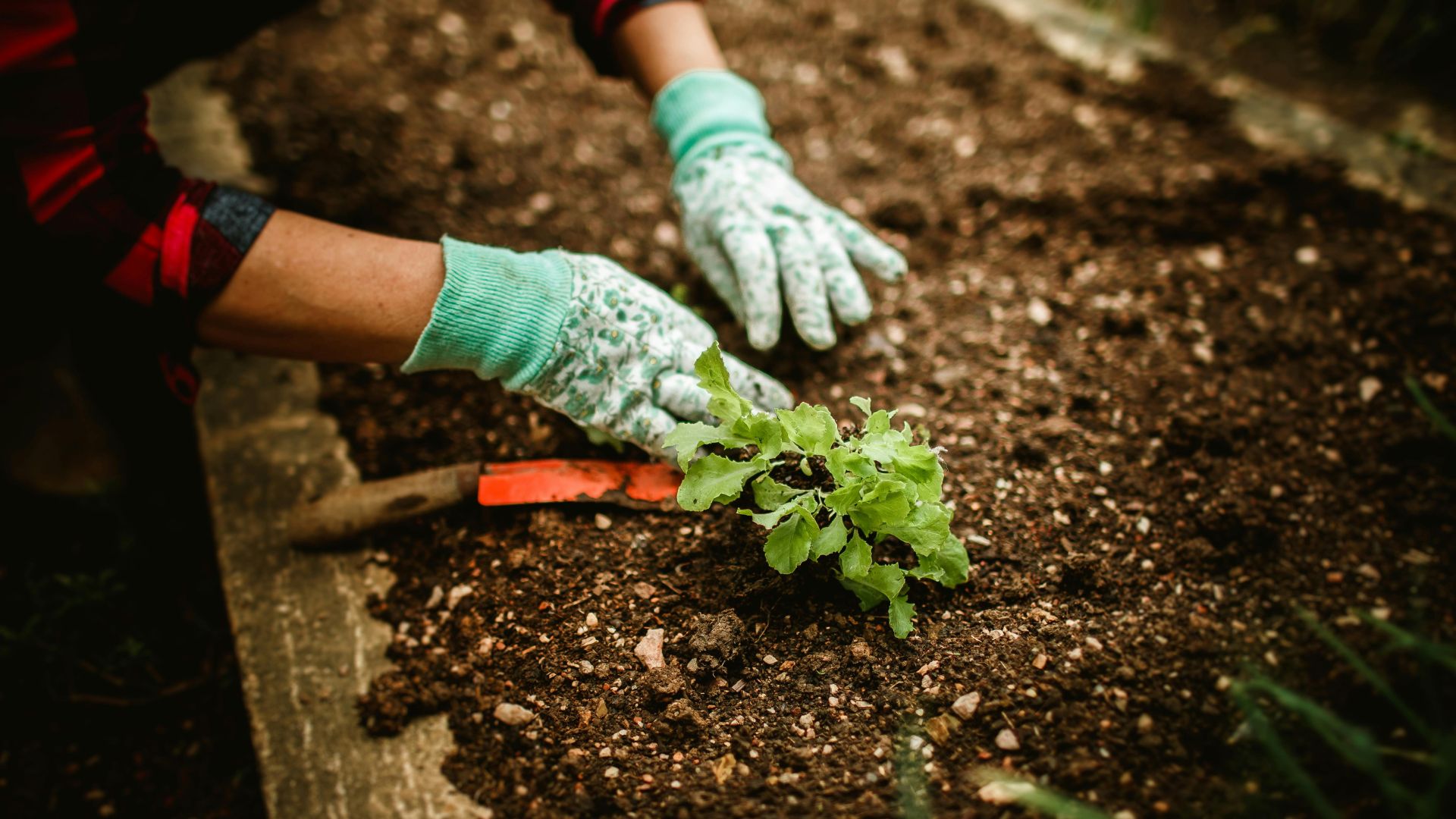
Oh, the wisdom that comes from those wrinkled hands! Grandma always seemed to have an uncanny ability to make anything grow, and her gardening tips were like magic.
I swear, she must’ve had a secret pact with nature itself. I remember sitting with her, devouring slices of blueberry pie, and listening to her garden tales as if they were family heirlooms being passed down.
It’s funny how simple things like using coffee grounds for roses or tossing egg shells around the tomatoes actually work.
Trust me, these 31 tips from Grandma are still turning heads and creating thriving gardens today. You’ll be nodding along with a smile.
1. Coffee Grounds For Acid-Loving Plants
Sprinkle coffee grounds to make your soil happy. For plants like azaleas, coffee grounds are a treat. They boost soil acidity and enrich with nitrogen.
This simple trick can transform your plants. Have a cup of joe, and your garden wins too. Grandma swore by this method, and the blooms never disappointed.
Just remember, moderation is key here. Excess can do more harm than good. It’s best to add them occasionally, ensuring your soil remains balanced and rich in nutrients.
2. Eggshells For Calcium
Don’t toss those eggshells! Crush them into pieces and let them do wonders in your garden. They provide calcium to plants like tomatoes and peppers, preventing blossom end rot.
Plus, they’re a natural pest deterrent. Scatter around the base, and your plants will thank you. It’s a crunchy addition that works magic.
Grandmas know that a little scrap can go a long way. It’s recycling at its finest, turning kitchen waste into garden treasure. Just make sure they’re clean and dry!
3. Banana Peels As Fertilizer
Banana peels aren’t just for slipping up cartoon characters. Place them in your soil to nourish with potassium. Roses, in particular, love this boost.
It’s an easy, natural way to enhance growth and flowering. Not to mention, it’s a great use for kitchen scraps.
Who knew a simple lunch could lead to such lush blooms? It’s waste-free, and your garden will show off the results.
4. Companion Planting For Pest Control
Pairing plants can be like matchmaking in the garden world. Tomatoes paired with marigolds? It’s a pest-repelling powerhouse.
The marigolds keep nematodes at bay, protecting your precious tomatoes. It’s not just about looks; it’s a strategy that pays off.
By planting allies together, you’re creating a natural defense. It’s nature’s way of lending a helping hand, and your garden will appreciate it.
5. Aphid Control With Soap Spray
Bubbles to the rescue! Aphids can wreak havoc, but a simple soap spray keeps them in check. It’s easy to make with just soap and water.
Coat the leaves gently, and watch those pests disappear. Grandma’s aphid-free garden was always a hit. It’s a gentle yet effective way to protect your plants.
The best part? You already have the ingredients at home. Just ensure you rinse it off after a day. Your garden remains lush and chemical-free, just like Grandma intended.
6. Mulching Keeps Weeds Away
Who knew mulch was a weed’s worst enemy? A layer of it keeps pesky weeds from sprouting. It also retains moisture, making your plants thrive with less water.
Your garden will always looked tidy, and mulch is the secret weapon. It’s a simple, effective method to maintain a healthy garden bed.
Plus, it breaks down over time, adding nutrients to the soil. This old trick is still a gardener’s best friend. Grab a rake and lay it down generously. Your plants will love the extra care!
7. Epsom Salt For Magnesium
A sprinkle of Epsom salt can transform your plants. It adds magnesium, crucial for photosynthesis and chlorophyll production. Tomatoes and peppers adore this boost.
Mix it with water or sprinkle it directly on the soil for immediate results. This simple addition can lead to a noticeable difference.
It’s an affordable way to give your garden a lift. Just use it sparingly. Too much can harm rather than help, keeping that balance is key.
8. Rainwater Harvesting
Nature’s gift in a barrel! Collecting rainwater saves money and benefits plants. It’s chemical-free, unlike tap water.
The flowers always seem brighter after a rainwater drink. It’s environmentally friendly and makes watering days easier. Set up a barrel, and watch it fill up during showers.
This water is perfect for delicate plants. It’s an effortless way to embrace sustainability. Your plants will thank you for the pure hydration. Grandma was ahead of her time with this eco-friendly practice.
9. Homemade Compost For Nutrients
Compost is like a nutrient buffet for plants. Scraps from the kitchen transform into garden gold. Grandma’s compost heap is legendary, filled with eggshells, veggie scraps, and leaves.
This mix enriches the soil, promoting healthier growth. It’s a win-win, reducing waste and feeding plants. Start a pile and turn it regularly.
The results are worth the minimal effort. It’s recycling at its most rewarding. Just let nature do its thing, and you’ll find your garden thriving with minimal fuss.
10. Baking Soda For Fungal Disease
A pantry staple doubling as a garden hero! Baking soda fights fungal diseases like powdery mildew. Mix it with water and spray on affected leaves.
This solution is gentle, safe, and effective. It’s amazing how a simple kitchen item can transform garden woes. Keep your plants healthy without harsh chemicals.
It’s an inexpensive and efficient method. Just reapply as needed, and watch your garden flourish. Grandma knows that sometimes simple solutions are the best.
11. Cinnamon As Ant Repellent
Cinnamon isn’t just for baking; it’s an ant’s worst nightmare. Sprinkle it around plants to keep those pests away. Your garden path will always be ant-free, thanks to this aromatic trick.
It’s a natural way to maintain control without chemicals. Plus, it smells fantastic! This simple solution is effective and easy to apply.
Just a dash around vulnerable areas does the trick. Keep your garden peaceful and pest-free with just a pantry staple. This tip keeps your plants safe and happy.
12. Vinegar For Weed Control
Vinegar is a weed’s worst enemy. Spray it on unwanted plants, and they wither away. Keep your paths clear thanks to this sharp concoction.
It’s an eco-friendly alternative to chemical weed killers. The acetic acid does the trick without harming the environment. Just be careful around your cherished plants.
It’s best for driveways and pathways. This tip keeps gardens tidy. It’s a simple, affordable solution. Use it on a sunny day for best results.
13. Garlic For Natural Pest Control
Garlic isn’t just for spaghetti night; it’s a powerful pest repellent. Crush cloves and mix with water for a spray that deters insects.
My grandma’s garden was always buzzing with life, but no pesky bugs. The smell keeps them at bay without harmful chemicals. It’s a natural way to protect your plants.
This solution is easy to make and apply. Reapply every week or after rain for continued protection. It’s a spicy, effective way to keep your garden safe. Grandma sure knew her aromatics!
14. Newspaper Layers For Weed Prevention
Old newspapers become garden allies. Lay them down to suppress weeds and retain moisture. It’s an effective, eco-friendly weed barrier.
Plus, it decomposes, enriching the soil over time. This simple trick combines recycling with gardening. Cover the papers with mulch for best results.
It’s a win-win, benefiting your plants and the environment. This idea shows us that a little innovation goes a long way. Let those newspapers find new purpose!
15. Hydrogen Peroxide For Root Health
Who knew first-aid supplies could help plants? A hydrogen peroxide solution improves root health, oxygenating the soil.
Mix it with water and pour around the base of plants. It’s effective for preventing root rot. This simple treatment leads to healthier growth. Just be cautious with the concentration.
Too much can harm plants. A little goes a long way, ensuring roots remain healthy. Your garden will thrive with this unexpected but powerful ally.
16. Neem Oil For Pest Management
Neem oil is like nature’s bug spray. It controls a wide range of pests without chemicals. Grandma’s pest-free plants were the envy of the neighborhood.
Mix with water and spray on affected areas. This oil disrupts pest life cycles, keeping your garden safe. It’s a versatile, non-toxic solution. Apply regularly for best results.
Grandma’s garden was always lush and lively, thanks to neem’s protective qualities. Protect your garden with this powerful natural oil. It’s an organic way to ensure plant health.
17. Wood Ash For Soil Enrichment
Ashes from the fireplace find new life in the garden. They enrich the soil with potassium and raise pH levels. Just sprinkle around, but not too much.
It’s especially good for root vegetables. This simple addition can transform plant health. Make sure to test your soil first.
Balance is key, as too much ash can disrupt soil pH. This tip is an easy way to recycle waste into plant nourishment.
18. Potato Slices For Rose Propagation
Potatoes and roses, an unlikely pair! Stick a rose cutting into a potato to promote root growth. The potato provides moisture and nutrients, aiding the cutting.
It’s an innovative way to propagate roses at home. Plant the potato and watch as roots develop. It’s a fun, experimental trick that actually works.
Make sure to keep the soil moist. This method adds a touch of magic to gardening. Who knew spuds could help roses flourish?
19. Honey As A Rooting Agent
Honey isn’t just for your tea. It’s a natural, effective rooting agent for plant cuttings. Simply dip the end of your cutting in honey before planting to encourage healthy root growth and prevent infection.
This method is not only non-toxic but also gentle on the plant, creating a protective coating that helps the cutting thrive.
Using honey in your gardening routine is a simple yet powerful way to support new plants. It’s nature’s sweet solution for giving your cuttings the best start in life.
20. Nettle Tea For Plant Boost
Nettle tea isn’t just for drinking. It’s a fantastic plant tonic. Soak nettles in water, and use the infused liquid to water plants.
The tea provides nutrients and boosts plant growth. It’s a natural fertilizer, rich in minerals. Use it on a range of plants for improved health. Just strain the liquid before use.
This tip is an easy way to harness nature’s power. Grandmas knew that the garden could provide its own solutions.
21. Chamomile Tea For Seedlings
Who would have thought that tea bags could be a gardener’s secret weapon? Chamomile tea, with its natural antifungal properties, helps prevent damping off disease in seedlings.
Simply brew the tea, let it cool, and use it to water your young plants. This gentle method encourages strong, healthy growth without harsh chemicals.
Regular use of chamomile tea can protect seedlings while promoting their development. It’s an easy, natural addition to your gardening routine.
22. Using Matches For Sulfur Boost
Matches in the soil? It’s a sulfur boost! Place a few matchsticks around plants like peppers. The sulfur from the matches aids growth and prevents disease.
It’s an unusual but effective method. This trick provides essential nutrients. Make sure to plant them heads down. It’s a cost-effective way to enhance plant health.
Grandma’s creativity knew no bounds in the garden. Who knew fire-starting tools could help plants flourish? This tip is as intriguing as it is effective.
23. Algae As A Fertilizer
Pond scum becomes garden gold! Algae is a nutrient-rich fertilizer. Collect algae and mix it into the soil. It enriches with nutrients and improves soil structure.
This natural method supports plant health. It’s an innovative way to utilize natural resources. Just ensure the algae is free from pollutants.
This tip shows that nature has all the answers. Who knew that a little pond could provide so much?
24. Mint For Rodent Control
Mint isn’t just for refreshing drinks. It’s also a natural rodent deterrent! Plant mint around your garden, and the strong scent will send pests running.
It’s a harmless way to keep rodents away and protect your plants. Also, mint spreads quickly, so be sure to keep it in check!
This natural solution not only keeps your garden safe but adds a lovely aroma to the air. It’s a win for both your senses and your plants!
25. Using Hair For Deer Repellent
Who knew hair could help gardens? Spread human hair around to deter deer. Grandma’s flowers never became deer snacks. The scent confuses and deters the animals.
It’s an eco-friendly way to protect your garden. Collect hair from brushes or salons. This tip keeps plants safe without chemicals. It’s a unique and effective method. Just spread around vulnerable areas.
Grandma always found creative ways to solve problems. This natural deterrent keeps your garden thriving. Your hair can do more than you think!
26. Marigolds For Nematode Control
Marigolds aren’t just beautiful. They’re natural protectors for your garden! The roots of marigolds release a chemical that repels nematodes and other pests, making them a functional addition to any garden.
Plant them around vulnerable plants, and you’ll notice healthier vegetables and flowers. This simple, natural tip is a great way to keep your garden pest-free without harmful chemicals.
Marigolds prove that flowers can do more than just look pretty; they can also safeguard your plants, providing both beauty and protection in one easy step.
27. Stale Beer For Slug Traps
Beer is a clever solution for dealing with slugs! To keep your plants safe, dig a small hole and place a container of stale beer in it.
Slugs are drawn to the scent and will crawl in, only to meet their watery demise. This non-toxic trick works wonders for protecting your garden from slimy pests.
Plus, it’s a great way to use up that leftover beer you don’t want to drink! It’s a quirky yet effective method for pest control that benefits both your plants and your fridge.
28. Cornmeal For Ant Control
Cornmeal is an unexpected hero when it comes to pest control! To keep ants at bay, simply sprinkle it around their hills. The ants munch on it but can’t digest it, which eliminates the problem.
It’s a pet-safe solution that’s both simple and effective. Regular use helps maintain an ant-free garden without any harmful chemicals.
Plus, it’s an affordable trick that relies on a pantry staple you likely already have. Sometimes, the simplest solutions, like this one, work the best.
29. Yogurt For Fungal Resistance
Yogurt as a garden remedy? It’s true! The probiotics fight fungal infections. My grandma’s plants always looked healthy. Mix yogurt with water and spray on affected leaves.
It’s a natural way to protect plants from disease. Reapply as needed for ongoing protection. This tip is an unexpected but effective solution.
Grandma showed us that food isn’t just for the kitchen. Keep your plants healthy with this creamy remedy. It’s an innovative blend of culinary and gardening wisdom!
30. Soaking Seeds Before Planting For Faster Germination
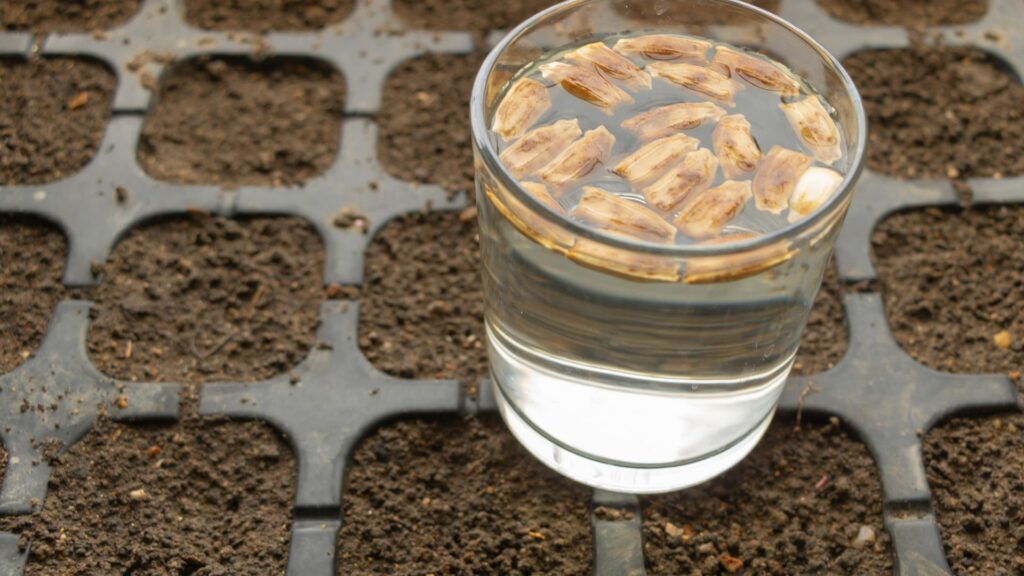
A little pre-planting bath can go a long way. Soaking seeds in water for 6 to 24 hours helps soften the seed coat and kickstart germination, especially for tougher seeds like peas, beans, beets, or nasturtiums.
Grandma would soak them overnight on the windowsill in a mason jar, saying it “wakes them up.” She was right — this trick gives seeds a head start, leading to quicker, more even sprouting.
Just don’t overdo it — too long in water and they might rot. Soak, plant, and let nature take over from there.
31. Crushed Oyster Shells For Soil Conditioning
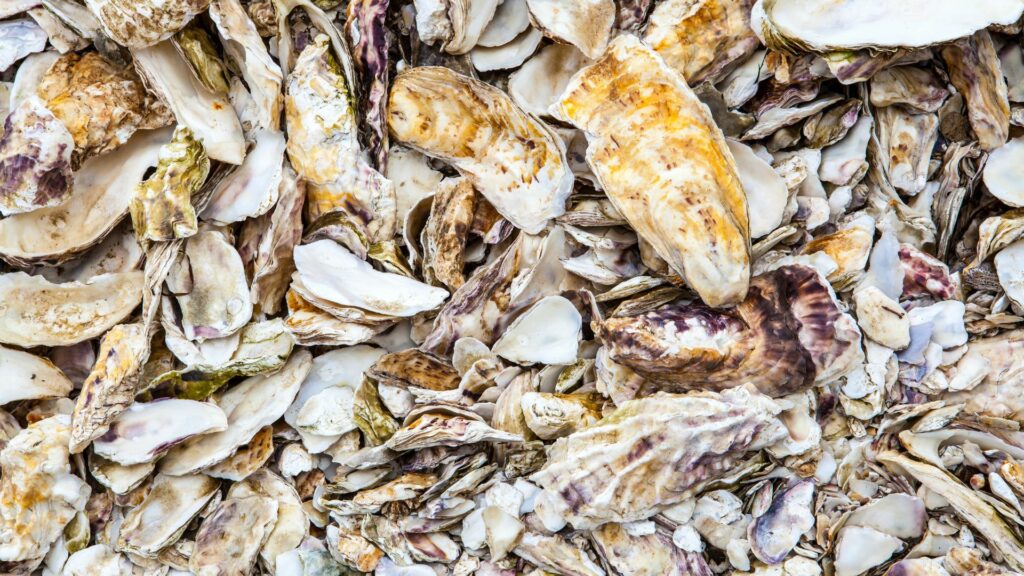
Oyster shells aren’t just for the compost — crushed shells are rich in calcium carbonate, which helps balance pH in acidic soils and adds long-term nutrients. Ideal for tomatoes, brassicas, and fruit trees.
Grandma never wasted a thing, and after a seafood dinner, those shells went straight into the garden bucket. Once crushed finely, they release minerals slowly and improve soil texture.
Just sprinkle them around the base of plants or mix into compost. It’s a sustainable way to improve your soil and put kitchen waste to good use.

